Aussie Health Expert Warns about Antibiotics
The president of the Australian Society for Infectious Diseases, Dr. Thomas Gottleib, is worried about the flow-on effects on the food chain.

The president of the Australian Society for Infectious Diseases, Dr. Thomas Gottleib, is worried about the flow-on effects on the food chain.
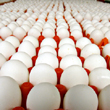
Along with McDonalds, grocery chains are racing to put distance between themselves and the Sparboe factory farms whose abominable treatment of egg-laying hens was caught in undercover video.
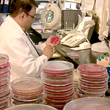
In case you’ve missed it so far, this is Get Smart About Antibiotics Week. That means the Centers for Disease Control is trying to warn us all about the danger that’s posed by our growing resistance to antibiotics.
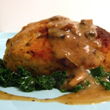
“This vegetarian treat is a beautiful addition to the Thanksgiving holiday table,” writes Christina W. “My family has been making it for years. You won’t even miss the turkey!
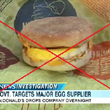
McDonalds has announced that it is dropping the factory where its eggs are produced after an undercover investigation revealed “significant and serious violations” at one of the country’s biggest egg companies, Sparboe Farms.

It’s the holy grail of animal protection and one of the key ways to protect the planet: cultured meat, grown in laboratories from cultured animal cells. And it’s coming closer.
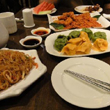
When people come to see me all clogged up and on eight different pills, and they’ve got chest pain when they walk half a block, they usually don’t need a whole lot of convincing.
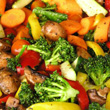
Just start simply, maybe just one day a week. Like on Thursday just have granola and soy milk for breakfast, a tofu sandwich for lunch and spaghetti for dinner just to show yourself that you can make it for one day without animal products. Then make it two days, then three days. Instead of having meat three times a day, make it one meal a day.
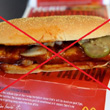
H.S.U.S. has filed a legal complaint against Smithfield Foods, citing an undercover operation in which it uncovered gestation crates that cause mother pigs to suffer “from open pressure sores and other ulcers and wounds” and “abscesses sometimes formed from simple scratches due to ever-present bacteria.”

We humans are amazing in our ability to adapt, including to adapt to unnatural and bizarre environments. Today, rather than eating real food, we mostly eat food-like substances in colorful packages and boxes.
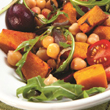
Dr. Michael Klaper says that while medicine is a complex, subtle and beautiful art, primary care medicine today needs to be, more than anything, about diet and lifestyle.

As I write this, we have just reached seven billion humans on the planet. And in the future there will be even more mouths to feed. We’re at a pivotal moment in world history, and there’s no doubt that the Earth can no longer sustain the increase in human population and our over-consuming and destructive ways.

One out of every three pets in the U.K. – that’s more than 12 million – are being fed treats that are leading to obesity. That’s the takeaway from a new study by the nation’s largest veterinary charity, the People’s Dispensary for Sick Animals (PDSA).

Dr. Klaper is among the growing number of physicians who have found that simply giving the body what it needs to be healthy is the key to enabling a true and healthful transformation.
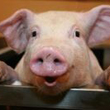
The race is on to see who can produce the first truly edible test-tube meat. So far, all that’s been produced are pale gray-looking, almost tasteless strips.
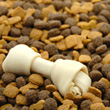
Concerns are growing that pet food may be subject to even worse contamination than human food.
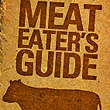
If everyone in the U.S. ate no meat or cheese just one day a week, over a year, the effect on emissions would be the equivalent of taking 7.6 million cars off the road.
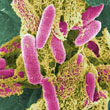
It’s become routine, food recalled from grocery stores for fear of contamination. This time, it’s 36 million pounds of turkey taken off the shelves.

According to a survey, three times as many American adults admit to being “ex-vegetarians” than describe themselves as current vegetarians.
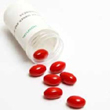
A bipartisan group of senators has re-introduced a bill to limit the use of antibiotics routinely fed to farm animals, especially in factory farms. In the…